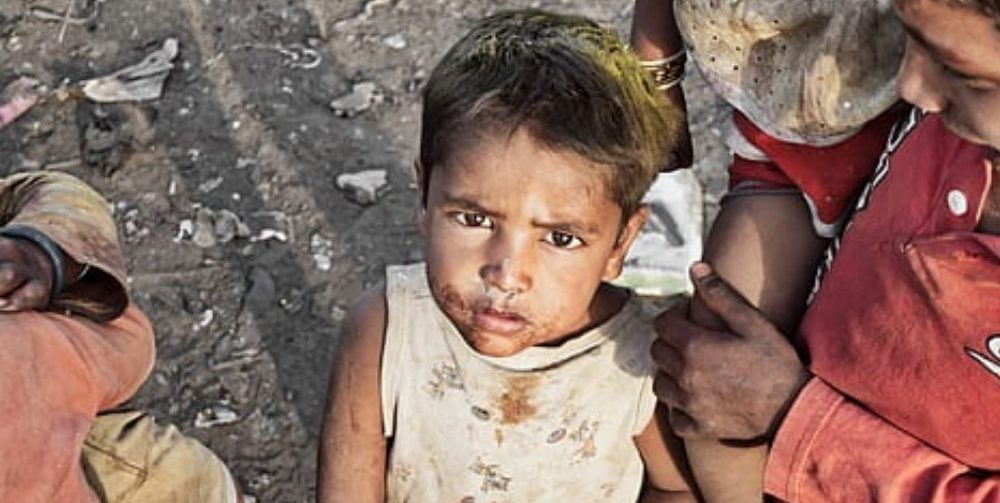To Beat COVID, Eating Enough Is Not Enough
While ensuring food and economic security for the poor is obviously a high priority, we cannot ignore the clear linkage between unhealthy diets and the severity of the pandemic.
The COVID-19 pandemic has been a wakeup call for our public health system, and starkly underlines the relationship between health, food systems and diets.
The plight of thousands of hapless migrants and urban desperately trying to return home despite the bleak prospects there and the possibility of them spreading the disease has been the topic of heated debate. While ensuring food and economic security for them is obviously a high priority, we cannot ignore the clear linkage between unhealthy diets and the severity of the pandemic.
There is robust evidence indicating that those with Non-Communicable Diseases (NCDs) are far more susceptible and vulnerable to COVID-19, and more likely to face severe symptoms. And there is even stronger evidence linking unhealthy diets with NCDs, or co-morbidities. But this is not a linear or one way linkage, with unhealthy diets leading to NCDs leading to susceptibility to the virus. As we have seen, the economic and social fallout of the pandemic, combined with the extended lockdown, has disrupted diets across the nation, with thousands dying of hunger and malnutrition.
In mid June, India had over 2,57,000 cases of COVID 19 including more than 7200 deaths according to Ministry of Health and Family Welfare (MoHFW). According to the ministry, more 70% of those who died had comorbidities. The World Health Organization (WHO) and the US Centers for Disease Control and Prevention (CDC) have identified these risk factors and comorbidities as age ( above 60-65 years) and people with pre-existing NCDs like cardiovascular diseases like hypertension, or those who have had, or are at risk of a heart attack or stroke, chronic respiratory disease, diabetes and cancer. Unhealthy diets and lifestyle are clearly linked to these NCDs. These unhealthy diets are usually high in sodium, sugar and unhealthy fats, and low in fruits and vegetables, nuts and seeds, whole grains and omega-3 fatty acids.
The numbers
According to a major 2015 survey conducted by the Indian Council For Medical Research of more than 1,80,000 participants across 14 states, nearly one third of Indian adults are hypertensive while one in 10 are diabetic. The WHO estimates that by 2025, more than 57 million Indians will be affected by diabetes. A study of the state level disease burden in India between 1990-2016 conducted by ICMR, PHFI and IHME shows that of the total disease burden in India in 1990, a tenth was caused by a group of risks including unhealthy diet, high blood pressure, high blood sugar, high cholesterol, and overweight. By 2016, these risks comprised almost a quarter of the total disease burden in India.
As we have seen, while highlighting the importance of diet, the COVID 19 pandemic compounds the problem by making healthier diets less affordable and accessible. Vegetables, fruits, and animal source foods have become increasingly difficult for the poor to access and afford. Moreover, the disruption in the availability of perishable food items has led to increased consumption of cheaper non-perishable foods like cereals and processed food. In India where 50% of per capita daily calories are obtained from cereals, 10% from processed food and merely 1-2% from fruits and vegetables (according to a recent study based on NSSO consumption data), this means a further deterioration in the quality of diets.
The government has banked on food-based safety net programs like the PDS to deliver its relief and recovery package. These programs are geared towards providing cereals (rice and wheat) and do not necessarily promote dietary diversity, except through income effects of a subsidy. These welfare programs also interfere with markets responsible for affordability of a diverse type of diet. It did not help that COVID and the lockdown disrupted public health systems and services to prevent and treat NCDs across the world (WHO Rapid Assessment of service delivery of NCDs).
COVID 19 therefore is call to action not just to ensure that adequate quantity of food reaches the poor and underprivileged, but to ensure quality as well. The policy restructuring needs to be geared towards transforming diets through multi-sectoral policies related to agriculture, food distribution, domestic and international trade along with a strengthened public health and social welfare system.
Devesh Roy and Manika Sharma are Senior Research Fellow and Program Manager at International Food Policy Research Institute (IFPRI) South Asia, New Delhi. Views expressed are personal. This article was originally published in Outlook India.
Odisha’s Deputy Chief Ministers Inaugurate Gender Responsive Cell to Strengthen Inclusive Agricultural Governance: A pioneering unit within the DAFE, developed
The IFPRI-AERA session on “Transforming Agri-Value Chains: Emerging Frontiers for Agribusiness” held on 3 December at the Indian Council of Agricultural
24 September 2025, New York: The SAARC (South Asian Association for Regional Cooperation) Agriculture Centre (SAC), Dhaka, and the International




